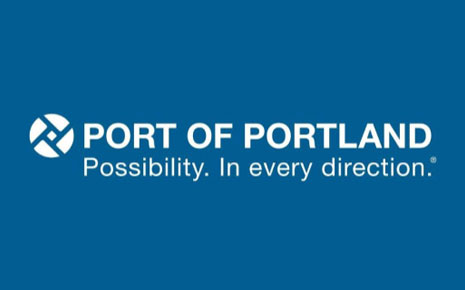
9 Nov 2021
Press Release, GPI in the News
FOR IMMEDIATE RELEASE
Dec. 9, 2021
Media Contacts
Greater Portland Inc
Anna Marum
anna.marum@greaterportlandinc.com
971-339-2012
Metro
Constantino Khalaf
constantino.khalaf@oregonmetro.gov
503-545-6450
Five-year economic strategy charts new course for Greater Portland region
The strategy from Greater Portland Inc and Metro identifies 44 action items to drive equitable growth. Public- and private-sector leaders are invited to review the actions and partner with a lead organization to support an action that complements their mission.
Portland, Ore. – Greater Portland Inc and Metro are proud to present the Comprehensive Economic Development Strategy for the Greater Portland region. The strategy takes stock of the region’s performance on a number of economic measures and identifies concrete actions to improve the regional economy.
The strategy charts a bold new vision for the Greater Portland region, one with an equitable, innovative, resilient and forward-thinking economy that fosters upward economic mobility for individuals and prosperity for businesses.
The document identifies three goals:
- Foster upward economic mobility
- Support a competitive economy
- Build a resilient region
There are 44 actions proposed in the strategy document with each one tied to one of these three goals, as well as the overarching vision.
“Equity was the through line in this strategy,” said Kimberly Branam, Prosper Portland executive director and Greater Portland Economic Development District (GPEDD) board chair. “The actions outlined in this document reflect diverse, expert perspectives on some of the most pressing issues in our region. It’s imperative we work together to bring these actions to life.”
Every five years, Greater Portland Inc (GPI) develops the region’s Comprehensive Economic Development Strategy (CEDS) on behalf of the regional economic development district, which includes Multnomah, Washington, Clackamas and Clark counties.
The 2022-2027 CEDS was developed in direct partnership with Metro, and was adopted by the GPEDD board of directors in July.
“I am pleased to share this important regional strategy, which aligns hundreds of partners around shared goals and will allow the region to leverage more funding in key areas,” said Metro Council President Lynn Peterson. “This strategy builds on the recovery plan we worked on with GPI last year, and both documents share the same vision for shared prosperity and economic growth.”
The strategy also defines seven target industry clusters for business attraction efforts, which directly affects GPI’s business recruitment strategy. This year, through the CEDS development process, two new target sectors were identified: climate tech and food and beverage manufacturing. The five carryover clusters are computers and electronics, software, apparel and outdoor, metals and machinery, and design and media.
To make the strategy’s vision a reality, the CEDS outlines 44 specific actions and identifies 35 lead organizations to shepherd these proposals through implementation. GPI staff will coordinate partners on implementation.
These actions include several pilot projects already underway:
- Metals and machinery cluster analysis and redefinition (Columbia River Economic Development Council)
- Equitable food systems platform to support small food businesses with scaling (City of Gresham)
- Preliminary supply chain gap analysis for semiconductor & closely related industry cluster (Cities of Forest Grove and Hillsboro)
- Community Chamber Coalition of Oregon campus site selection to support business owners and young people in entrepreneurism (CCCO)
- Bi-state collaboration to grow the Columbia River work-shed (Columbia Connects)
- Columbia Willamette Workforce Collaborative Quality Jobs Initiative (CWWC)
- Helping BIPOC students access traded-sector jobs (Portland State University)
“The release of this strategy document is just the beginning of the work,” said Monique Claiborne, executive director of GPEDD and president and CEO of GPI. “GPI will lead nine actions, and I call on our public- and private-sector leaders to review the 44 actions and partner with a lead organization to advance an action of your choosing. If you want to make a difference in your community, this is a great way to do so.”
# # #
About Greater Portland Inc: Greater Portland Inc provides support and services to companies seeking to relocate or expand in Greater Portland, a region that spans two states and seven counties. A true public-private partnership model, Greater Portland Inc is supported by 80 public- and private-sector partners who are committed to advancing regional economic development through job growth and investment. Greater Portland Inc and partners shape the region’s economic future and market the region to the world. Learn more at greaterportlandinc.com.
About Metro: Across greater Portland in 24 cities and three counties, there’s one local government that brings us all together. Led by an elected council, Metro helps Oregonians shape the future and provides services that make life better today. Metro’s work spans parks and nature, land and transportation, garbage and recycling, and arts and events. We help make greater Portland a great place to call home.
More Topics




